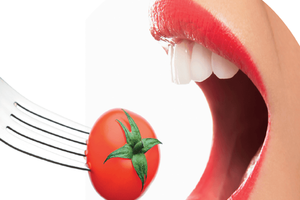
The inability to swallow is called dysphagia, and it can occur for a variety of reasons. The throat is made up of muscles that contract and push food downwards into the stomach. The act of swallowing is finely coordinated by the brain and executed through nerve connections via the muscles of the throat. Any disease affecting the brain (such as stroke, dementia or Parkinson’s disease), nerves and muscles (such as post-radiotherapy for cancer and autoimmune diseases) can impair the ability to swallow.
Any obstruction in the throat or oesophagus (the food passage leading from the throat to the stomach) such as a tumour can cause food to get stuck. The inability of food to transit smoothly from the throat into the oesophagus may inadvertently lead to aspiration of food into the lungs, causing pneumonia. This may be life- threatening, especially in the frail and elderly. The risk of dysphagia increases with age. The elderly are more prone to strokes and degenerative diseases of the brain. They may be frail and taking medication that cause mouth dryness, making swallowing more difficult. If food goes the wrong way into the lungs, they also have more difficulty coughing it up.
Depending on the dysfunction, swallowing therapy or surgery may be required. In severe dysphagia with a high risk of aspiration, feeding is sometimes impossible and the patient may need a feeding tube. A nutritionist may be consulted to optimise the caloric intake before malnutrition and dehydration set in.







